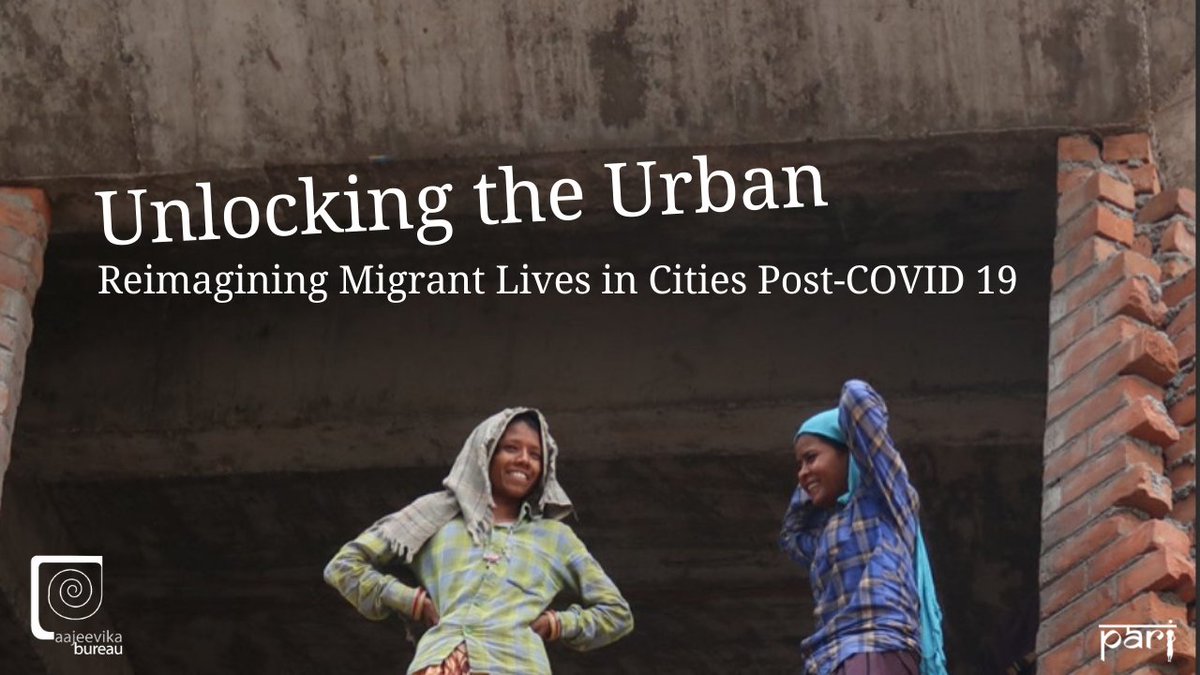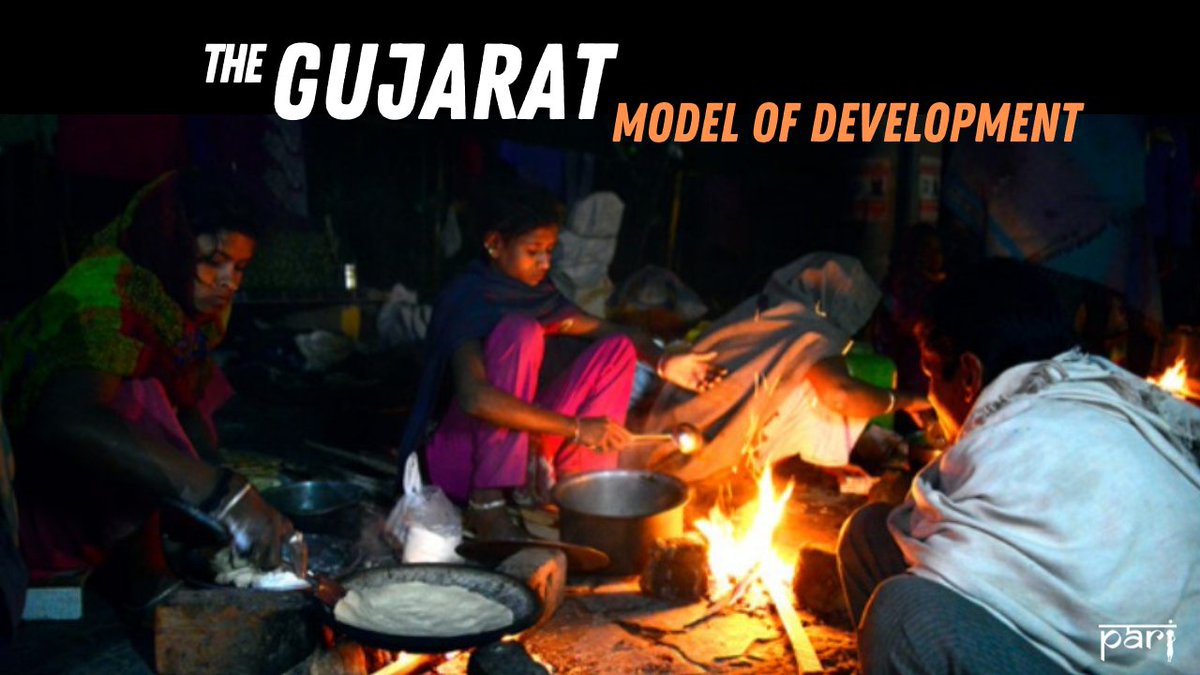
This is a report by Aajeevika Bureau (an organisation working with migrant workers in Gujarat and Rajasthan) in April 2020. It explores the experiences faced by ‘circular migrants’ employed in the informal labour markets of Ahmedabad and Surat. 🧵
ruralindiaonline.org/en/library/res… |Free
ruralindiaonline.org/en/library/res… |Free

2| Circular migrants move between ‘urban work destinations’ and their villages in rural areas, without settling in the cities where they are employed. Such migration includes movements that are short or long term; over short or long distances. 

3| The ‘Gujarat Model of Development’, states the report, has been lauded as a success story for neoliberal reforms and an example for the rest of India. The state has large capital investments in power supply, ports, jetties, roads, industrial estates, and has over 50 SEZs, but 

... Gujarat fares much lower on indicators of social and economic inclusion as compared to other states. The report notes that “The Gujarat Model of Development provides a prime example of urban growth accompanied by deepening socio-economic inequalities.” 

A survey covering 285 migrants in Ahmedabad reveals 70% didn't treat their drinking water or used a simple cloth filter to remove large stones/sand, making them susceptible to water-borne diseases. They were employed in construction, manufacturing, hotels, dhabas or domestic work 

6| It was also found that women migrant workers were largely responsible for the daily collection and storage of water for their families. 

7| Powerloom and textile production industries are the largest recruiters of migrant labour in Surat. The city is home to migrant workers from Andhra Pradesh, Madhya Pradesh, Maharashtra, Odisha, Rajasthan & Telangana. Migrant workers engaged in the powerloom industry in Surat – 

8| ..predominantly single males – live in extremely unhealthy conditions, mostly in crowded and shared ‘mess rooms’ in the industrial areas of Surat. The rooms are around 500 to 800 square feet, where over 100 workers “…live amid power cuts, filth and noise.” 

9|According to the survey on circular migrants in Ahmedabad, construction workers living onsite – largely SC and ST families – spend an average of 46% of their income on food. Adivasi families living in factories spend an even lower average of 29% of their income on food and fuel 

10| A potential reason for this is that both male and female Adivasi workers chew tobacco, which is known to repress hunger, during the day to sustain themselves for continuous 12 to 16-hour shifts. 

11| In Surat, 92% of the 150 circular migrants surveyed reported using privately run facilities for healthcare – private hospitals, private clinics, ‘Bengali doctors’ (local practitioners) or directly approaching chemists’ shops, hardly accessing urban health centres (UHCs) 

12| In most urban development programmes, the report observes, individuals have to prove their domicile status in the city to be eligible for urban public services and entitlements. 

13| The survey on circular migrants in Surat found that 23% of them had voter IDs, 31% had Aadhaar cards, and 21% had bank documents in the city. None of the 150 migrants surveyed had a ration card in Surat. 

📷| Anoop Sathyan, Manish Shukla, Jagjit Singh, Tathya Macwan
Factoids by Aakanksha. Free Download Link | ruralindiaonline.org/en/library/res…
Factoids by Aakanksha. Free Download Link | ruralindiaonline.org/en/library/res…
@threadreaderapp unroll please
• • •
Missing some Tweet in this thread? You can try to
force a refresh
















